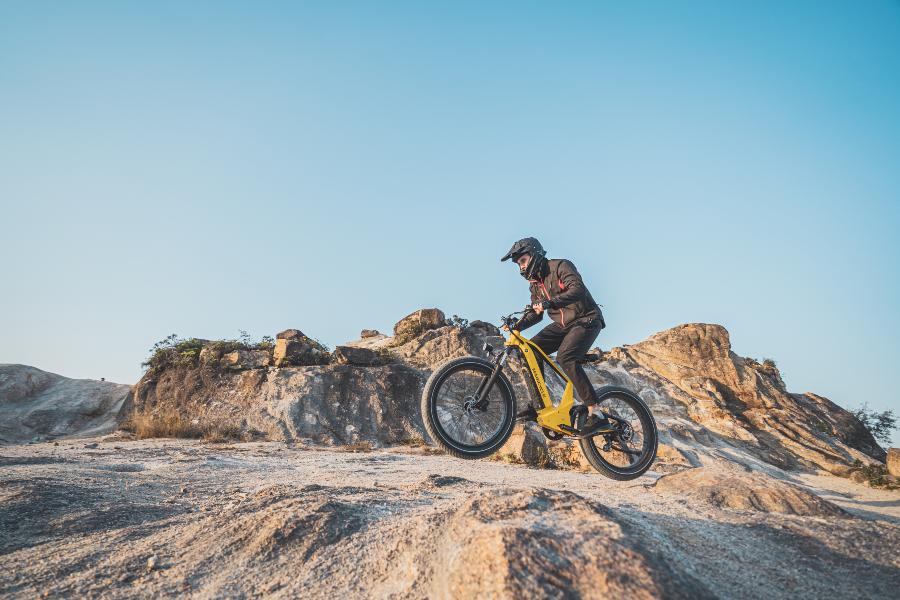If you're in the market for an electric mountain bike, one of the first decisions you'll need to make is whether to choose a hardtail or full suspension ebike. Both options have their advantages and disadvantages, and the choice ultimately depends on your riding style, skill level, and personal preferences. In this blog post, we'll explore the differences between hardtail and full suspension electric mountain bikes, and help you make an informed decision about which one is right for you.
Hardtail Electric Mountain Bikes
A hardtail electric mountain bike is a bike that has an ebike suspension system on the front fork, but no suspension on the rear frame. This means that the back wheel is connected directly to the frame, providing a stiffer, more efficient ride. Hardtail bikes are often lighter and less expensive than full suspension bikes, making them a popular choice for casual riders or those on a budget.
One of the biggest benefits of a hardtail electric mountain bike is its efficiency. Because there is no suspension on the rear frame, hardtail bikes transfer more power from the pedals to the wheels, resulting in faster acceleration and better climbing ability. They also tend to have lower maintenance costs since there are fewer moving parts to maintain or repair.
However, the lack of rear suspension can make hardtail bikes less comfortable to ride on rough terrain or longer rides. Riders may experience more jarring bumps and vibrations, leading to fatigue or discomfort over time. Additionally, without rear suspension, it can be more difficult to maintain traction on steep descents or technical trails.
Full Suspension Electric Mountain Bikes
On the other hand, a full suspension electric mountain bike has both front and rear suspension systems, providing a smoother, more comfortable ride over rough terrain. Full suspension bikes absorb shocks and impacts, allowing riders to maintain better control and stability while riding. They are especially well-suited for technical trails and downhill riding.
One of the biggest benefits of full suspension electric mountain bikes is their comfort. The rear suspension system absorbs shocks and vibrations, reducing fatigue and improving overall ride quality. Full suspension bikes also offer better traction and control on steep descents or uneven terrain, making them more versatile than hardtail bikes.
However, full suspension electric mountain bikes are typically heavier and more expensive than hardtail bikes. They also require more maintenance, with more moving parts to maintain and repair. Additionally, the added suspension can sometimes reduce efficiency and power transfer, making full suspension bikes less ideal for fast-paced or competitive riding.
Choosing the Right Electric Mountain Bike
Ultimately, the choice between a hardtail or full suspension electric mountain bike comes down to your individual needs and preferences. Consider your riding style, skill level, budget, and the types of trails you'll be riding on when making your decision. If you're a beginner or casual rider, a hardtail bike may be the best choice for you. If you're an experienced rider who enjoys technical trails or downhill riding, a full suspension bike may be the better option.
Regardless of which type of bike you choose, it's important to invest in high-quality electric mountain bikes for sale that meet your specific needs. Look for bikes with durable frames, powerful motors, long-lasting batteries, and responsive brakes and suspension systems. With the right electric mountain bike, you can enjoy all the thrills and excitement of mountain biking while taking your adventures to new heights.

